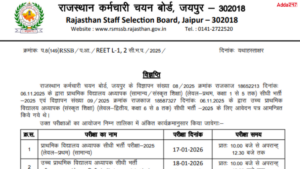Table of Contents
Attitude, Values and Interest : Attitude, Values and Interest are pat of behaviour which comes with judgement. Values stand as the moral ethics of a person or a society. All are inter related with human behaviour and their attitudes. Here we are going to learn in detail more about Attitude, Values and Interest – Definitions, Measurement, Characteristics
Attitude, Values and Interest/
अभिवृत्ति मूल्य और रुचि
Attitude
Meaning and Definition of Attitude : –
An attitude is a variable which directly observed, but it is inferred from overt behaviour both verbal and non – verbal responses. In more objective term the concept of attitude may be said to connote response tendency with regard to certain categories of stimuli. In actual practice the term ‘attitude’ has been most frequently associated with emotionally toned responses. The deep rooted feelings are the attitudes which cannot be changed easily.
“An attitude is defined as a tendency to react in certain way toward a designated class of stimuli or an object.
अभिवृत्ति
अभिवृत्ति का अर्थ और परिभाषा: –
एक अभिवृत्ति एक चर है जो प्रत्यक्ष रूप से देखा जाता है, लेकिन यह मौखिक और गैर-मौखिक प्रतिक्रियाओं दोनों के खुले व्यवहार से अनुमान लगाया जाता है। अधिक वस्तुनिष्ठ शब्द में अभिवृत्ति की अवधारणा को कुछ श्रेणियों की उत्तेजनाओं के संबंध में प्रतिक्रिया प्रवृत्ति को व्यक्त करने के लिए कहा जा सकता है। वास्तविक व्यवहार में “रवैया” शब्द को अक्सर भावनात्मक रूप से टोंड प्रतिक्रियाओं से जोड़ा जाता है। गहरी जड़ें वे मनोवृत्तियाँ हैं जिन्हें आसानी से बदला नहीं जा सकता।
“एक अभिवृत्ति को उत्तेजना या किसी वस्तु के निर्दिष्ट वर्ग के प्रति निश्चित तरीके से प्रतिक्रिया करने की प्रवृत्ति के रूप में परिभाषित किया जाता है।
Opinion and Attitude : –
Opinion is sometimes differentiated from attitude, but the proposed distinctions are neither consistent nor logically defensible. More often the two terms are used interchangeable but psychologically these two terms are altogether different.
- Attitude of an individual is generally very rigid it cannot be easily changed, but opinion can be revised or changed easily.
- Attitude of an individual can be graded easily but opinion cannot be graded, the opinions are usually in the form of yes or no.
- Attitude of individual is considered as human trait or important variable, is measured by rating scales. Opinion is not considered as trait or variable, is areas concern. Opinion air is the tool to call the opinion of the individuals polling.
- How an individual feel or what he believes is his attitude, but difficult to measure and describe. We have to depend for his attitude, what the individual says as to his beliefs and feelings. Really the expression is the opinion. Total opinion forms an attitude.
- The term opinion is used more often is refer to judgments and knowledge, where as the term ‘attitude‘ is more connotative of belongs, feelings and preferences.
- The opinions are usually verifiable than attitudes.
राय और अभिवृत्ति: –
राय को कभी-कभी अभिवृत्ति से अलग किया जाता है, लेकिन प्रस्तावित भेद न तो सुसंगत हैं और न ही तार्किक रूप से बचाव योग्य हैं। अधिकतर दो शब्दों का प्रयोग परस्पर विनिमय के लिए किया जाता है लेकिन मनोवैज्ञानिक रूप से ये दोनों शब्द पूरी तरह से भिन्न हैं.
- किसी व्यक्ति का रवैया आम तौर पर बहुत कठोर होता है इसे आसानी से बदला नहीं जा सकता है, लेकिन राय को संशोधित या आसानी से बदला जा सकता है।
- किसी व्यक्ति के दृष्टिकोण को आसानी से वर्गीकृत किया जा सकता है लेकिन राय को वर्गीकृत नहीं किया जा सकता है, राय आमतौर पर हां या ना के रूप में होती है।
- व्यक्ति के दृष्टिकोण को मानवीय गुण या महत्वपूर्ण चर माना जाता है, जिसे रेटिंग पैमानों द्वारा मापा जाता है। राय को विशेषता या परिवर्तनशील नहीं माना जाता है, यह क्षेत्र की चिंता है। ओपिनियन एयर मतदान करने वाले व्यक्तियों की राय जानने का उपकरण है।
- एक व्यक्ति कैसा महसूस करता है या वह क्या मानता है वह उसका दृष्टिकोण है, लेकिन मापना और वर्णन करना मुश्किल है। हमें उसके दृष्टिकोण पर निर्भर रहना पड़ता है कि व्यक्ति अपने विश्वासों और भावनाओं के बारे में क्या कहता है। वास्तव में अभिव्यक्ति ही राय है। कुल राय एक दृष्टिकोण बनाती है।
- राय शब्द का प्रयोग अक्सर निर्णय और ज्ञान के संदर्भ में किया जाता है, जबकि “रवैया” शब्द संबंधित, भावनाओं और वरीयताओं के अधिक अर्थपूर्ण है।
- राय आमतौर पर दृष्टिकोण से सत्यापित होती है.
VALUES
Meaning and Definition of Values : –
The term ‘value‘ is more sociological concept. The values fall in the realm of ethics, economics, aesthetics and religion. They exist as they are experienced in human minds and translated into human actions. The value determines the direction of human actions. Thus values are the significant determinant for individual differences. The values are related to feelings and beliefs of an individual which are deep rooted. The value is defined in terms of sentiments and emotions likes and dislikes etc.
“Values seem to reside in the objects just as truly as do colour, smell temperature size and shape”. C.E.M. Joad (1942)
मूल्य
- मूल्यों का अर्थ और परिभाषा: –
“मूल्य” शब्द अधिक समाजशास्त्रीय अवधारणा है। मूल्य नैतिकता, अर्थशास्त्र, सौंदर्यशास्त्र और धर्म के दायरे में आते हैं। वे मौजूद हैं क्योंकि वे मानव मन में अनुभव किए जाते हैं और मानव कार्यों में अनुवादित होते हैं। मूल्य मानव क्रियाओं की दिशा निर्धारित करता है। इस प्रकार मूल्य व्यक्तिगत मतभेदों के लिए महत्वपूर्ण निर्धारक हैं। मूल्य व्यक्ति की भावनाओं और विश्वासों से संबंधित होते हैं जिनकी जड़ें गहरी होती हैं।
मूल्य को भावनाओं और भावनाओं की पसंद और नापसंद आदि के संदर्भ में परिभाषित किया गया है।
“मूल्य वस्तुओं में वैसे ही निवास करते हैं जैसे कि रंग, गंध तापमान आकार और आकार वास्तव में होते हैं”। C.E.M. जोड (1942)
Characteristics of values : –
The following are the characteristics of value –
- It is the satisfaction of human wants.
- It is the psychological needs of a person.
- It is a generalized and that guides individual behavior and it is an organized ends.
- It is an outcome of human choices among the competitive human interest.
- It is the psychic – energy invested in the personality of an individual.
- It is the real determinant of human behavior and relationship between subject and object.
- It is socially approved desires and goals, and experiences of life which guides the actions and behavior are known as values.
मूल्यों के लक्षण: –
मूल्य की विशेषताएं निम्नलिखित हैं –
- यह मानवीय आवश्यकताओं की संतुष्टि है।
- यह एक व्यक्ति की मनोवैज्ञानिक जरूरतें हैं।
- यह एक सामान्यीकृत है और जो व्यक्तिगत व्यवहार का मार्गदर्शन करता है और यह एक संगठित लक्ष्य है।
- यह प्रतिस्पर्धी मानव हितों के बीच मानवीय विकल्पों का परिणाम है।
- यह एक व्यक्ति के व्यक्तित्व में निवेशित मानसिक ऊर्जा है।
- यह मानव व्यवहार और विषय और वस्तु के बीच संबंध का वास्तविक निर्धारक है।
- यह सामाजिक रूप से स्वीकृत इच्छाएं और लक्ष्य हैं, और जीवन के अनुभव जो कार्यों और व्यवहार का मार्गदर्शन करते हैं, मूल्यों के रूप में जाने जाते हैं।
Test of Values : –
A test of values, in contrast to one of attitudes, claims to measure generalized and dominant interests. The study of values (Allport and others), is based upon six categories of values, as classified by spranger (type of men). The items are intended to measure the relative prominence of the subject‘s interests, for the purpose of classifying his values. The six categories of values are –
- Theoretical values
- Economic values
- Aesthetic values
- Social values
- Political values and
- Religions values
मूल्यों का परीक्षण: –
मूल्यों का एक परीक्षण, एक दृष्टिकोण के विपरीत, सामान्यीकृत और प्रमुख हितों को मापने का दावा करता है। मूल्यों का अध्ययन (ऑलपोर्ट और अन्य), मूल्यों की छह श्रेणियों पर आधारित है, जैसा कि स्पैंजर (पुरुषों के प्रकार) द्वारा वर्गीकृत किया गया है। वस्तुओं का उद्देश्य उसके मूल्यों को वर्गीकृत करने के उद्देश्य से विषय के हितों की सापेक्ष प्रमुखता को मापना है। मूल्यों की छह श्रेणियां हैं –
- सैद्धांतिक मूल्य
- आर्थिक मूल्य
- सौंदर्य मूल्य
- सामाजिक मूल्य
- राजनीतिक मूल्य और
- धर्म मूल्य
According to this classification –
- The dominant interest of the theoretical man is discovery of truth.
- The economic is interested in what is useful for him.
- The aesthetic values form and harmonize most.
- The highest value the social type is love of people.
- The political man is interested primarily in power, and
- The religious man places the highest value on unity.
इस वर्गीकरण के अनुसार –
- सैद्धांतिक व्यक्ति का प्रमुख हित सत्य की खोज है।
- आर्थिक रुचि उसी में है जो उसके लिए उपयोगी है।
- सौंदर्यवादी मूल्य सबसे अधिक बनते हैं और उनमें सामंजस्य स्थापित करते हैं।
- सामाजिक प्रकार का उच्चतम मूल्य लोगों का प्रेम है।
- राजनीतिक व्यक्ति मुख्य रूप से सत्ता में रुचि रखता है, और
- धार्मिक व्यक्ति एकता को सबसे अधिक महत्व देता है।
INTEREST
Interest is the integral part of one‘s personality. It is an acquired trait from the environment. Personality is a wider term including all the psycho – physical dispositions, behaviours, views, Interests and attitudes of an individual. Adjustment has some relevance with interests. According to Kelly, interests of an individual really important information about the make – up of his personality. Interests are one of the determinants of the individual differences.
Definition of Interest : – The following are some important definitions of the term interest.
“An interest is a tendency to become absorbed in an experience and to continue it”. Bingham, W.V.
रूचि
रुचि व्यक्ति के व्यक्तित्व का अभिन्न अंग है। यह पर्यावरण से अर्जित गुण है। व्यक्तित्व एक व्यापक शब्द है जिसमें किसी व्यक्ति के सभी मनो-शारीरिक स्वभाव, व्यवहार, विचार, रुचियां और दृष्टिकोण शामिल हैं। समायोजन की रुचियों के साथ कुछ प्रासंगिकता होती है। केली के अनुसार, किसी व्यक्ति के हितों के बारे में उसके व्यक्तित्व के निर्माण के बारे में वास्तव में महत्वपूर्ण जानकारी है। रुचियां व्यक्तिगत मतभेदों के निर्धारकों में से एक हैं।
रूचि की परिभाषा :- रूचि शब्द की कुछ महत्वपूर्ण परिभाषाएँ निम्नलिखित हैं।
एक रुचि एक अनुभव में लीन हो जाने और इसे जारी रखने की प्रवृत्ति है” – बिंघम, W.V.
Characteristics of Interest
The following are the main characteristics of Interest : –
- Interests are not necessarily related to ability or aptitude.
- Interest can be hereditary as well as acquired from environment, through the interests are mainly acquired.
- Interests are fairly stable, cannot be changed easily.
- Interests of an individual resemble with his parents or family interests.
- Interests are the aspects of personality of an individual.
- Interests are related to aptitudes and achievements.
रूचि की मुख्य विशेषताएं निम्नलिखित हैं: –
- जरूरी नहीं कि रुचियां योग्यता या योग्यता से संबंधित हों।
- रूचि वंशानुगत होने के साथ-साथ पर्यावरण से भी प्राप्त किया जा सकता है, हितों के माध्यम से मुख्य रूप से प्राप्त किया जाता है।
- रुचियां काफी स्थिर हैं, आसानी से नहीं बदली जा सकतीं।
- किसी व्यक्ति के हित उसके माता-पिता या पारिवारिक हितों से मिलते जुलते हैं।
- रुचियां व्यक्ति के व्यक्तित्व के पहलू हैं।
- रुचियां योग्यता और उपलब्धियों से संबंधित हैं।
Measurement of Interest : –
There are various methods and tools of measuring personality such as observation, interview, check list questionnaire and inventories.
The following are most popular interest inventories –
- Strong Vocational Interest Blank by E.K. Strong
- Kuder Preference Record, and
- Occupational Interest Inventory.
रूचि का मापन:-
व्यक्तित्व को मापने के विभिन्न तरीके और उपकरण हैं जैसे अवलोकन, साक्षात्कार, जांच सूची प्रश्नावली और सूची।
सबसे लोकप्रिय ब्याज सूची निम्नलिखित हैं –
- मजबूत व्यावसायिक रुचि खाली ई.के. स्ट्रोंग
- कुदर वरीयता रिकॉर्ड, और
- व्यावसायिक रुचि सूची।




 Maharashtra TAIT Result 2025 Out, Downlo...
Maharashtra TAIT Result 2025 Out, Downlo...
 REET Mains Exam Date 2026 Released, Chec...
REET Mains Exam Date 2026 Released, Chec...
 REET Mains Notification 2025 Out for 775...
REET Mains Notification 2025 Out for 775...












